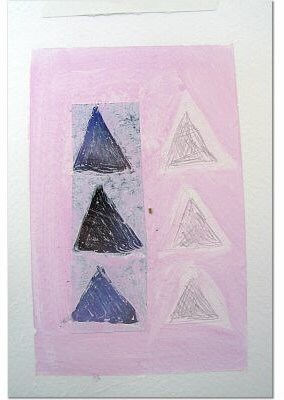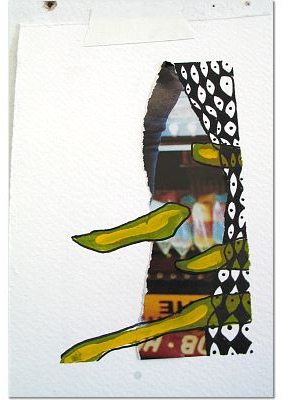 July 06
July 06
Shiatsu
Jeffrey Green

1.
I would never submit to shiatsu massages for three reasons: I don’t like having strangers touch me; I begrudge the expense; and I don’t believe in “alternative” therapies. Nevertheless, for more than a year I have been going regularly for a weekly shiatsu treatment, and I have even submitted to several rounds of acupuncture. Such is the contradictory life one leads here in Jerusalem – probably anywhere.
The man who is treating me with shiatsu, whom I will call Marc, is not a stranger. He and his wife are part of our wider circle of friends, and I have known them slightly for years. He is approaching seventy, originally from France, of North African descent, and an artist, formerly an architect, as well as a serious student of traditional Chinese medicine, from which shiatsu, a Japanese technique, derives. He is introverted and has good hands. I don’t always enjoy what he does to my body. Sometimes he presses hard on sensitive places, and it hurts, but I always feel better after a treatment, and it appears to have had a good long term effect on me. I haven’t had a serious cold or caught the flu since I began treatment, though I have had some tendonitis and other aches and pains.
Maybe it would be easier if my shiatsu man were a total stranger. I enjoy privacy. I am self-protective. I want to choose the people I am intimate with and what I reveal to them. Writing may be a form of self-exposure, but it is controlled. I don’t let readers see what I don’t want them to see, if I can help it. But self-protection can be self-defeating. What one conceals from others ends up being concealed from oneself. Marc wants to make me feel better, and he can’t do that unless I submit my body to his hands without protecting it. Perhaps that very submission is a step toward handling my last years in the best possible way – accepting help, admitting vulnerability.
I have another acquaintance who is a chiropractor, and I once asked him what it was like to touch people all the time, in a society where people don’t ordinarily act that way. He agreed with me that our society is not one where people are comfortable touching one another, and he said that he had to learn to touch his patients “with authority.” That’s a good way to describe the way Marc touches me.
What is it about touching one another? I grew up on the East Coast of the United States, where white people, especially white men, kept their hands off one another. When I was growing up, people thought that if you wanted to touch another man or be touched by another man, you were probably a fairy. Recently it appears that American men, some of the people who visit us in Israel, hug each other when they meet, but I’m not comfortable with that. Israel is a more spontaneous and demonstrative society than white American society, Mediterranean in that respect, but people still don’t go around laying their hands on strangers. Anyway, I like people to keep a certain distance.
You can’t touch people you don’t know, because touching people is such a powerful way of knowing them. You don’t want strange people touching you, because it breaks down your social self. Sex workers obviously touch their clients, providing contact that would ordinarily be intimate, but, I imagine, in an impersonal way. The shiatsu therapist creates an intimacy that is not sexual, touching your body in places where you are not used to being touched, in ways that you never expected to be touched. There is knowledge, and it is reciprocal. The shiatsu therapist knows what’s going on in the patient’s body, and the patient learns something about the therapist from the way the treatment goes.
2.
When I arrive in Marc’s treatment room, which is also a small art studio, I change into thin trousers and a tee-shirt, if I am not already dressed that way, and I take off my shoes and socks. Marc spreads a fresh sheet of paper on his treatment table. I lie on my stomach, putting put my head in a round, cushioned circle that allows me to keep my neck straight, as if my face were buried in a pillow, without suffocating. The lights are dim, though they could be bright, as far as I am concerned, since I keep my eyes closed. Marc plays quiet music, often Chinese music, which I put up with, while he works, starting on my back.
 Marc is intuitive and creative in his approach to shiatsu. He starts each treatment more or less the same way, massaging my back, but there’s no telling how they’ll develop. He does what his hands tell him to do. Usually I am responsive, very much present in my body. Sometimes I feel a hot current surging between two points that Marc touches. When he touches me in two places, like my ankles, I might feel pressure in a third place, on my back, where I know he is not touching me. I often try to be aware of what he is doing to me and cooperate, visualizing the pressure. I believe that Marc is a gifted practitioner. His treatments are unpredictable and surprising, and it’s rather surprising to note the swings in mood and alertness that I experience during a treatment.
Marc is intuitive and creative in his approach to shiatsu. He starts each treatment more or less the same way, massaging my back, but there’s no telling how they’ll develop. He does what his hands tell him to do. Usually I am responsive, very much present in my body. Sometimes I feel a hot current surging between two points that Marc touches. When he touches me in two places, like my ankles, I might feel pressure in a third place, on my back, where I know he is not touching me. I often try to be aware of what he is doing to me and cooperate, visualizing the pressure. I believe that Marc is a gifted practitioner. His treatments are unpredictable and surprising, and it’s rather surprising to note the swings in mood and alertness that I experience during a treatment.
Shiatsu works on the mind in the body, the body of the mind. During my first round of treatments with Marc, which I quit after a couple of months, he told me that my brain (thought) was dominating my body. I was thinking too much, trying too hard to control everything with my mind. I had no idea how he sensed that from giving me massages, but I took it for a valid insight. Marc is an intelligent, insightful, and creative man, who has immersed himself in Chinese thought, medicine, and art, including Zen calligraphy, where the point is freeing movement from the superficial, conscious flow of the mind, to allow deeper levels of mind and body to express themselves. I trusted Marc’s insight, especially since it tallied with my own sense of where I was as a person who wanted to be more creative. I have been involved with literature and music and for a long time, and have been held back by my inability to free the spirit from the mind – and more deeply, I think, by a lack of boldness. Obviously that’s connected to self-protection. Control is a way of protecting yourself.









